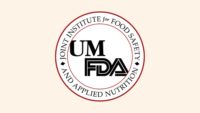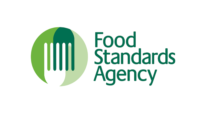Life Technologies Corporation today announced that it has signed a five-year agreement with the Food and Drug Administration (FDA) to accelerate and advance food safety testing of E. coli and Salmonella, two foodborne contaminants commonly associated with outbreaks and/or recalls.
The collaboration consists of three distinctive projects:
1. Life Technologies will design and validate new food safety tests for the detection and identification of foodborne pathogens, with pathogen strains provided by the FDA.
2. Life Technologies will design and validate a complete workflow for food pathogen detection on the Ion PGM™ platform, while optimizing sample preparation methods.
3. The FDA will have the opportunity to evaluate new disruptive technology platforms by Life Technologies for the use in pathogen detection.
Life Technologies will use its bioinformatics resources to independently develop real-time PCR (polymerase chain reaction) assays against unique E. coli and Salmonella targets in collaboration with the FDA. It will then provide the test results for these targets to the FDA for further validation.
The FDA will use Life Technologies' Ion PGM™ Sequencer to generate whole genome sequence information from defined bacteria, and for strains that will be excluded from detection. Life Technologies' bioinformatics team will then analyze the genomic information and provide assays or tests to the FDA for further validation and analysis. Whole genome sequences generated under the collaboration will be added to the National Institutes of Health Genbank so they can be accessed by the food safety research community.
"We are excited to be entering this cooperative research and development agreement with the FDA as we have been working alongside them in one capacity or the other for over 10 years," said Nir Nimrodi, Vice President and General Manager for Food Safety and Animal Health at Life Technologies. "The FDA will call on us, particularly when it comes to developing rapid detection kits. This agreement allows them to have new rapid track and trace products for rapid identification of foodborne contaminants."
Lastly, the FDA will validate and test Life Technologies' next-generation sequencing technologies for Salmonella investigations as part of its effort to develop new rapid detection tools that can improve the public health response to future outbreaks.
Life Technologies has a strong history of combating pathogen outbreaks. In 2011, Life Technologies developed a custom assay to accurately detect the highly pathogenic E. coli 0104:H4 bacterium that spread through Europe, killing hundreds of people.
"The assay was developed using samples supplied by scientists at University Hospital Munster, who completed the DNA sequencing and analysis work on the deadly E. coli strain using the Ion PGM™ Sequencer," said Maneesh Jain, Ion Torrent Vice President of Marketing for Life Technologies. "Now the FDA will validate and test this same technology to understand the molecular relationship within the Salmonella pathogen in the hopes to prevent future outbreaks from occurring."
The PGM™ offers scientists the simplest and fastest workflow, lowest cost-per-sample, and highest sensitivity for multiple basic and clinical research applications.
Get our eMagazine delivered directly to your inbox
Stay in the know on the latest science-based solutions for food safety.
SUBSCRIBE TODAY!Copyright ©2024. All Rights Reserved BNP Media.
Design, CMS, Hosting & Web Development :: ePublishing



